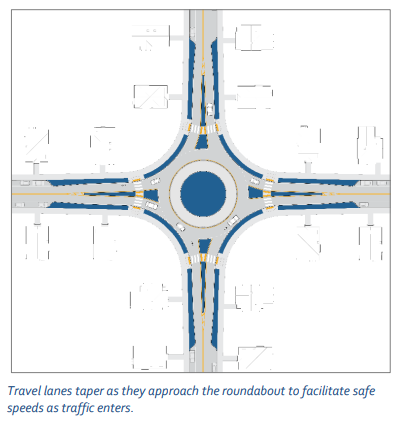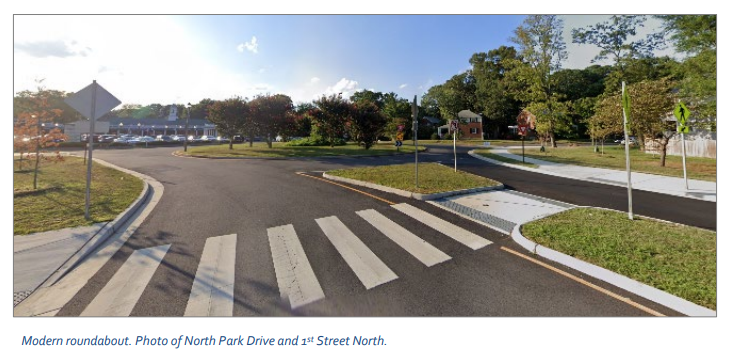Modern Roundabouts
Purpose
Modern roundabouts reduce speeds and number of conflict points at intersections while maintaining efficient traffic operations.

Description
Roundabouts are an intersection treatment in which all approaches must yield to traffic already within the roundabout. After yielding, vehicles are able circulate the center island to turn or continue straight. Larger vehicles may utilize mountable truck aprons if built around the island. Crosswalks are typically set back from the intersection, allowing drivers to focus on pedestrians crossing separately from the circle.
Safety Objectives and Benefits
- Reduces vehicle speeds by forcing drivers to maneuver around the circle.
- Reduces crossing distances for pedestrians.
- Reduces the conflict points for all modes.
Street Types and Context
Applicable Street Types
All street types.
Primary User Groups

Key Implementation Considerations
- Signage should direct traffic flow and create awareness of roundabout rules.
- Typically requires significant right-of way (space under the County or State’s jurisdiction) at corners to implement.
- May be landscaped with low shrubs or vegetation that does not impede visibility.
- Accommodating large vehicles such as emergency vehicles or school buses requires the roundabout to have a large radius.
Expected Crash Reduction
Converting a two-way stop-controlled intersection to a roundabout results in an estimated 82% reduction in serious injury crashes. Converting a signalized intersection to a roundabout results in an estimated 78% reduction in serious injury crashes. (Highway Safety Manual)
Cost

Roundabouts are typically lower in cost to install and maintain than a signal. They generally require significant curb and drainage work, as well as extensive time and resources if an easement is required for installation.
Timeline

Three or more years.
Application in Arlington
Visit Vision Zero Program Dashboard: Modern Roundabout to see where this tool has been implemented.
Vision Zero Dashboard
References
